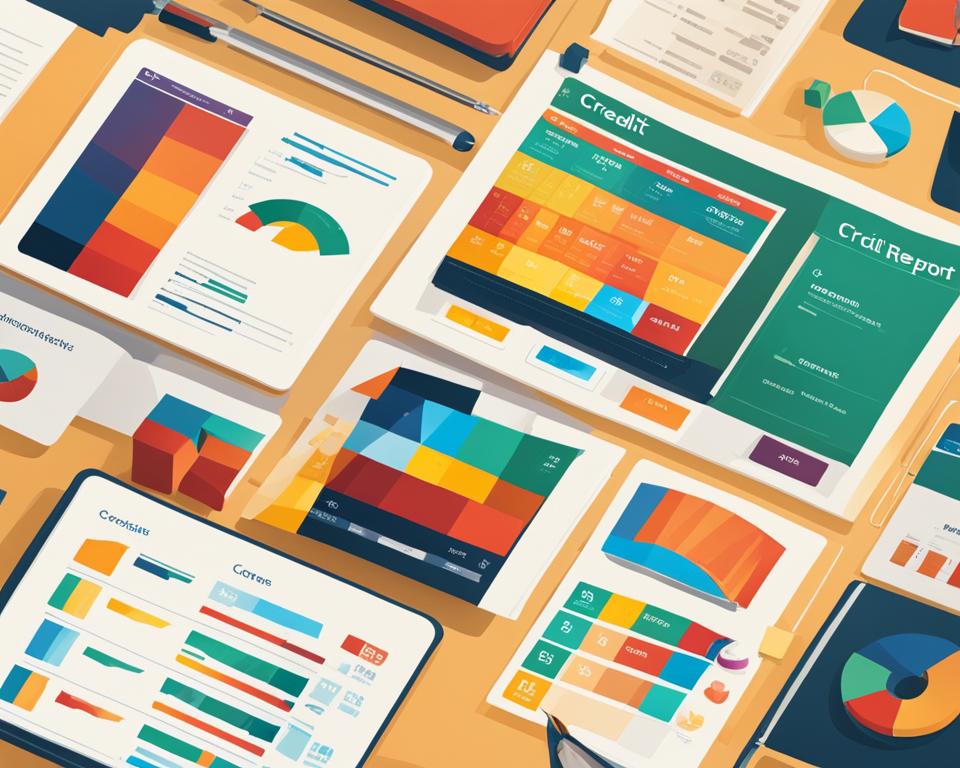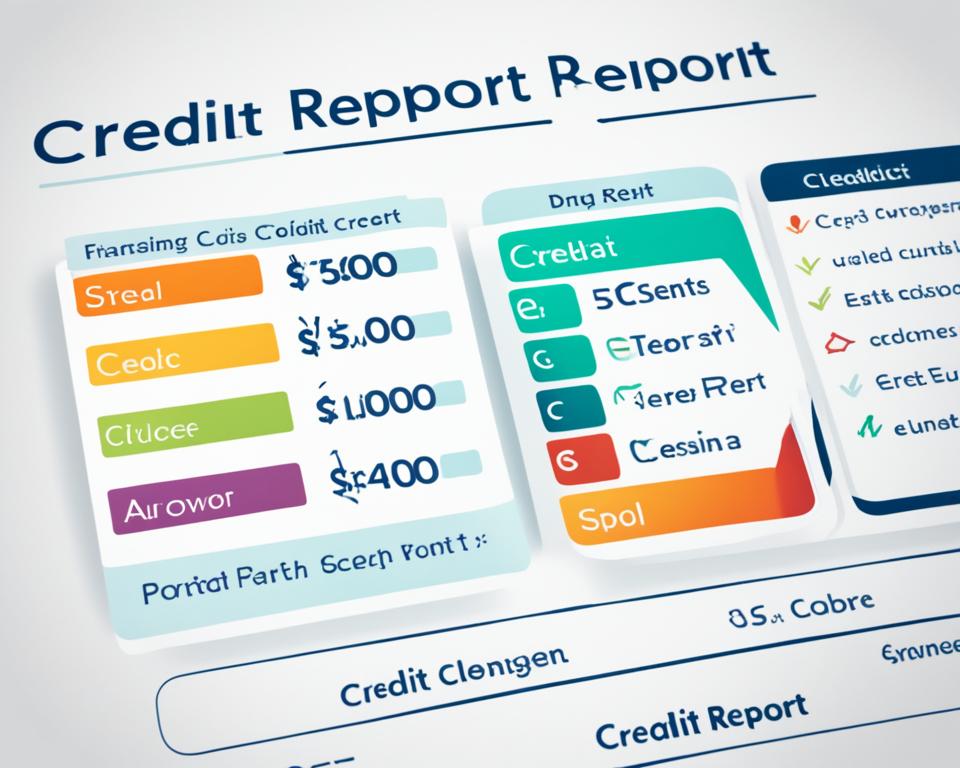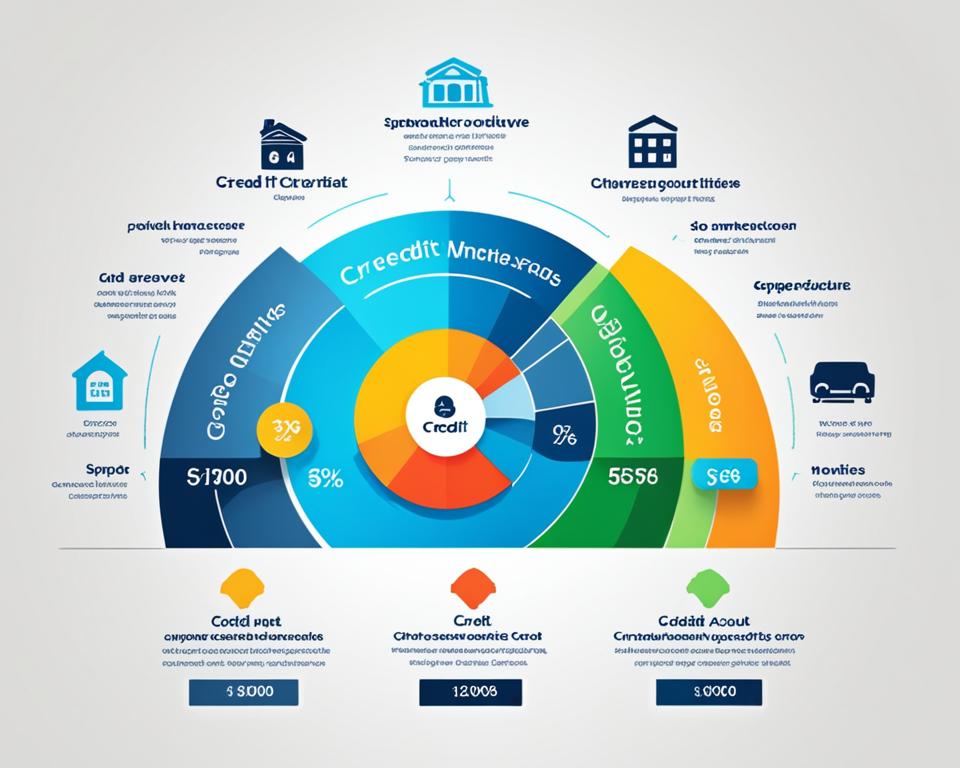Understanding your credit report is a crucial step towards improving your credit score and managing your financial health effectively. When it comes to credit repair, knowledge is power, and your credit report holds valuable insights into your credit history and financial habits.
A credit report is a detailed record of your credit history compiled by credit bureaus. It includes information about your credit accounts, payment history, credit inquiries, and public records such as bankruptcies or liens. Lenders, landlords, and financial institutions rely on your credit report to assess your creditworthiness.
To obtain your credit report, you can request a free copy from each of the three major credit bureaus – Equifax, Experian, and TransUnion. The Fair Credit Reporting Act (FCRA) entitles every individual to a free annual credit report from each bureau. You can request your reports online, by mail, or over the phone.
Understanding the components of your credit report is essential. Your credit history lists your past and current credit accounts, their balances, and payment history. It also includes your credit scores, which are numerical representations of your creditworthiness based on the information in your credit report.
Credit bureaus play a crucial role in credit reporting, collecting, and maintaining credit information about individuals. They gather data from lenders, credit card companies, and public records. Credit bureaus also offer credit monitoring services, which allow you to keep track of changes in your credit report and detect any potential signs of fraud or identity theft.
By regularly reviewing your credit report, you can identify errors or inaccuracies that may be impacting your credit score negatively. Understanding your credit report empowers you to make informed decisions about your financial health, improve your credit, and seize better opportunities for borrowing and financial success.
Key Takeaways:
- Understanding your credit report is essential for credit repair and effective credit management.
- A credit report is a detailed record of your credit history compiled by credit bureaus.
- You can obtain a free credit report from each of the three major credit bureaus annually.
- Your credit report contains crucial information about your credit accounts and payment history.
- Credit bureaus collect and maintain credit information about individuals and offer credit monitoring services.
What is a credit report?
A credit report is a detailed record of your credit history that is compiled by credit bureaus. It provides important information about your financial history and creditworthiness. Lenders, landlords, and other financial institutions rely on your credit report to evaluate your creditworthiness and make decisions regarding lending or offering services.
Your credit report includes various components that provide a comprehensive view of your credit profile:
- Information about your credit accounts: This includes details about your credit cards, loans, mortgages, and other lines of credit. It includes the account type, account number, date opened, and credit limits or loan amounts.
- Payment history: Your credit report shows your payment history for each credit account. It indicates whether you have made payments on time, late payments, or missed payments.
- Credit inquiries: Your credit report lists inquiries made by lenders or creditors when you apply for credit. This includes both hard inquiries, which occur when you apply for new credit, and soft inquiries, which occur when your credit report is accessed for non-credit purposes, such as by potential employers.
- Public records: Your credit report may contain information from public records, such as bankruptcies, court judgements, tax liens, or other legal actions related to your financial obligations.
By reviewing your credit report, you can gain insights into your financial habits, identify any errors or discrepancies, and take steps to improve your creditworthiness. It’s important to note that your credit report does not include your credit score, which is a separate numerical representation of your creditworthiness.
Understanding the components of your credit report is crucial for managing your finances effectively and taking control of your credit health. Regularly monitoring your credit report allows you to stay informed about your credit profile, detect any fraudulent activity, and make informed decisions regarding credit management.
How to obtain your credit report
To obtain your credit report, you can request a free copy from each of the three major credit bureaus – Equifax, Experian, and TransUnion. The Fair Credit Reporting Act (FCRA) entitles every individual to a free annual credit report from each bureau. Luckily, accessing your credit report is a straightforward process that can be done online, by mail, or over the phone.
- Online: The easiest and fastest way to obtain your credit report is by visiting the official websites of Equifax, Experian, and TransUnion. Each bureau provides a secure online platform where you can request your report. Simply provide the necessary information, such as your name, address, social security number, and date of birth, and your credit report will be available for viewing and download.
- By Mail: If you prefer a more traditional method, you can request your credit report by mail. Visit the websites of Equifax, Experian, and TransUnion to download and print the request form. Fill out the form with your personal information and send it to the address provided. Once your request is processed, your credit report will be mailed to you.
- Over the Phone: Another option is to request your credit report over the phone. Each credit bureau has a toll-free number that you can call to make your request. Simply provide the necessary information to the customer service representative, and they will guide you through the process. Your credit report will be mailed to you after your request is processed.
Remember, under the FCRA, you are entitled to one free credit report from each bureau every year. It’s a good idea to stagger your requests throughout the year, so you can regularly monitor your credit and address any discrepancies or errors.
Obtaining your credit report is an important step towards understanding your financial standing. By reviewing your credit report regularly, you can ensure its accuracy, identify any potential issues, and take the necessary steps to improve your credit score.
Sample Credit Report
Below is a sample table that illustrates the sections typically found in a credit report:
| Section | Description |
|---|---|
| Personal Information | Includes your name, address, social security number, date of birth, and employment history. |
| Credit Accounts | Lists all your credit accounts, including credit cards, loans, and mortgages. It includes information such as the account balance, payment history, and the date the account was opened. |
| Public Records | Records any bankruptcies, tax liens, or civil judgments against you. |
| Credit Inquiries | Shows a list of businesses or individuals who have requested a copy of your credit report within a certain timeframe. |
| Payment History | Provides details about your payment history, including any late payments or defaults. |
Understanding the different sections of your credit report will empower you to manage your credit effectively and make informed financial decisions.
Understanding the components of your credit report
Your credit report is a comprehensive document that provides important insights into your financial history and creditworthiness. It consists of several key components that you need to understand in order to assess your credit health effectively.
Credit History
Your credit history is a crucial part of your credit report. It outlines your past and current credit accounts, providing details such as:
- Account Types: Credit cards, loans, mortgages, etc.
- Account Balances: The amount of money you owe on each account.
- Payment History: Your record of timely or late payments on each account.
By reviewing your credit history, lenders can assess how you’ve managed your financial obligations in the past. A positive credit history, characterized by consistent on-time payments and low balances, can boost your creditworthiness.
Credit Scores
Credit scores are numerical representations of your creditworthiness, derived from the information in your credit report. Lenders use credit scores to evaluate the level of risk associated with lending you money.
There are various credit scoring models, with FICO® and VantageScore® being the most widely used. These scores typically range from 300 to 850, with higher scores indicating better creditworthiness. The factors that influence your credit scores include:
- Payment History: Timely payments boost your scores, while late payments can have a negative impact.
- Credit Utilization: Keeping your credit card balances low compared to your credit limits demonstrates responsible credit usage.
- Length of Credit History: A longer credit history generally improves your credit scores.
- Types of Credit: Having a diverse mix of credit accounts, such as credit cards, loans, and mortgages, can positively affect your scores.
- New Credit Applications: Numerous credit inquiries within a short period may lower your credit scores temporarily.
It’s important to regularly monitor your credit scores, as they play a significant role in determining your eligibility for loans, credit cards, and favorable interest rates.
Sample Credit Report
| Credit Account | Account Balance | Payment History |
|---|---|---|
| Credit Card | $2,500 | Consistently Paid on Time |
| Auto Loan | $12,000 | Consistently Paid on Time |
| Student Loan | $8,500 | Occasional Late Payment |
| Mortgage | $180,000 | Consistently Paid on Time |

Understanding the components of your credit report allows you to evaluate your financial standing and identify areas for improvement. By maintaining a positive credit history and monitoring your credit scores, you can increase your creditworthiness and gain access to better financial opportunities.
The role of credit bureaus in credit reporting
Credit bureaus play a vital role in the credit reporting process. These agencies are responsible for collecting and maintaining credit information about individuals, which is then used by lenders, landlords, and other financial institutions to assess creditworthiness.
So, how do credit bureaus gather this information? They collect data from various sources, including:
- Lenders
- Credit card companies
- Public records such as bankruptcies or liens
By collating information from these sources, credit bureaus create comprehensive credit reports that provide an overview of an individual’s credit history, including their credit accounts, payment history, credit inquiries, and public records.
Why credit monitoring is important
Additionally, credit bureaus offer credit monitoring services to help individuals stay on top of their credit reports. Credit monitoring allows you to:
- Keep track of changes in your credit report
- Detect any potential signs of fraud or identity theft
Regularly monitoring your credit report can help you identify any errors, inaccuracies, or suspicious activities that may be negatively impacting your credit score. By taking prompt action and reporting any discrepancies to the credit bureaus, you can protect yourself from potential financial harm.
Now that we understand the role of credit bureaus in credit reporting and the importance of credit monitoring, let’s explore the next section where we’ll delve deeper into understanding the components of your credit report.
Conclusion
Understanding your credit report is crucial for effective credit management. By regularly reviewing your credit report, you can identify any errors or inaccuracies that may be negatively impacting your credit score. Additionally, being aware of your credit history and credit scores enables you to make informed decisions about your financial health.
Developing financial literacy is key to improving your credit management skills. By educating yourself on topics such as budgeting, saving, and responsible borrowing, you can make smarter financial choices and avoid common credit pitfalls.
Implementing strategies to improve your credit can lead to better opportunities for borrowing and financial success. By paying bills on time, reducing debt, and maintaining a healthy credit utilization ratio, you can gradually improve your credit score and increase your chances of obtaining favorable loan terms and interest rates.
In conclusion, credit management and financial literacy go hand in hand. By understanding your credit report, developing financial literacy, and implementing effective credit management strategies, you can take control of your financial future and achieve your financial goals.
FAQ
Why is it important to understand your credit report?
Understanding your credit report is crucial for effective credit management. By knowing the information contained in your credit report, you can identify any errors or inaccuracies that may be negatively impacting your credit score. Additionally, being aware of your credit history and credit scores enables you to make informed decisions about your financial health.
What is a credit report?
A credit report is a detailed record of your credit history that is compiled by credit bureaus. It includes information about your credit accounts, payment history, credit inquiries, and public records such as bankruptcies or liens. Your credit report is used by lenders, landlords, and other financial institutions to assess your creditworthiness.
How can I obtain my credit report?
To obtain your credit report, you can request a free copy from each of the three major credit bureaus – Equifax, Experian, and TransUnion. The Fair Credit Reporting Act (FCRA) entitles every individual to a free annual credit report from each bureau. You can request your reports online, by mail, or over the phone.
What are the components of a credit report?
Your credit report contains several key components that are important to understand. This includes your credit history, which lists your past and current credit accounts, their balances, and payment history. It also includes your credit scores, which are numerical representations of your creditworthiness based on the information in your credit report.
What is the role of credit bureaus in credit reporting?
Credit bureaus are responsible for collecting and maintaining credit information about individuals. They gather data from various sources such as lenders, credit card companies, and public records. Credit bureaus also offer credit monitoring services, which allow you to keep track of changes in your credit report and detect any potential signs of fraud or identity theft.
How can understanding my credit report improve my credit score?
By regularly reviewing your credit report, you can spot any errors or inaccuracies that may be negatively impacting your credit score. Addressing these issues and maintaining a healthy credit history can help improve your credit score over time. It also allows you to identify areas where you can make changes or take actions that positively influence your creditworthiness.
How does understanding my credit report contribute to my financial literacy?
Understanding your credit report is an essential aspect of financial literacy. It empowers you to make informed decisions about your financial health and take proactive steps towards improving your creditworthiness. By being aware of your credit history and credit scores, you can develop strategies for managing your finances more effectively and make choices that benefit your long-term financial well-being.





